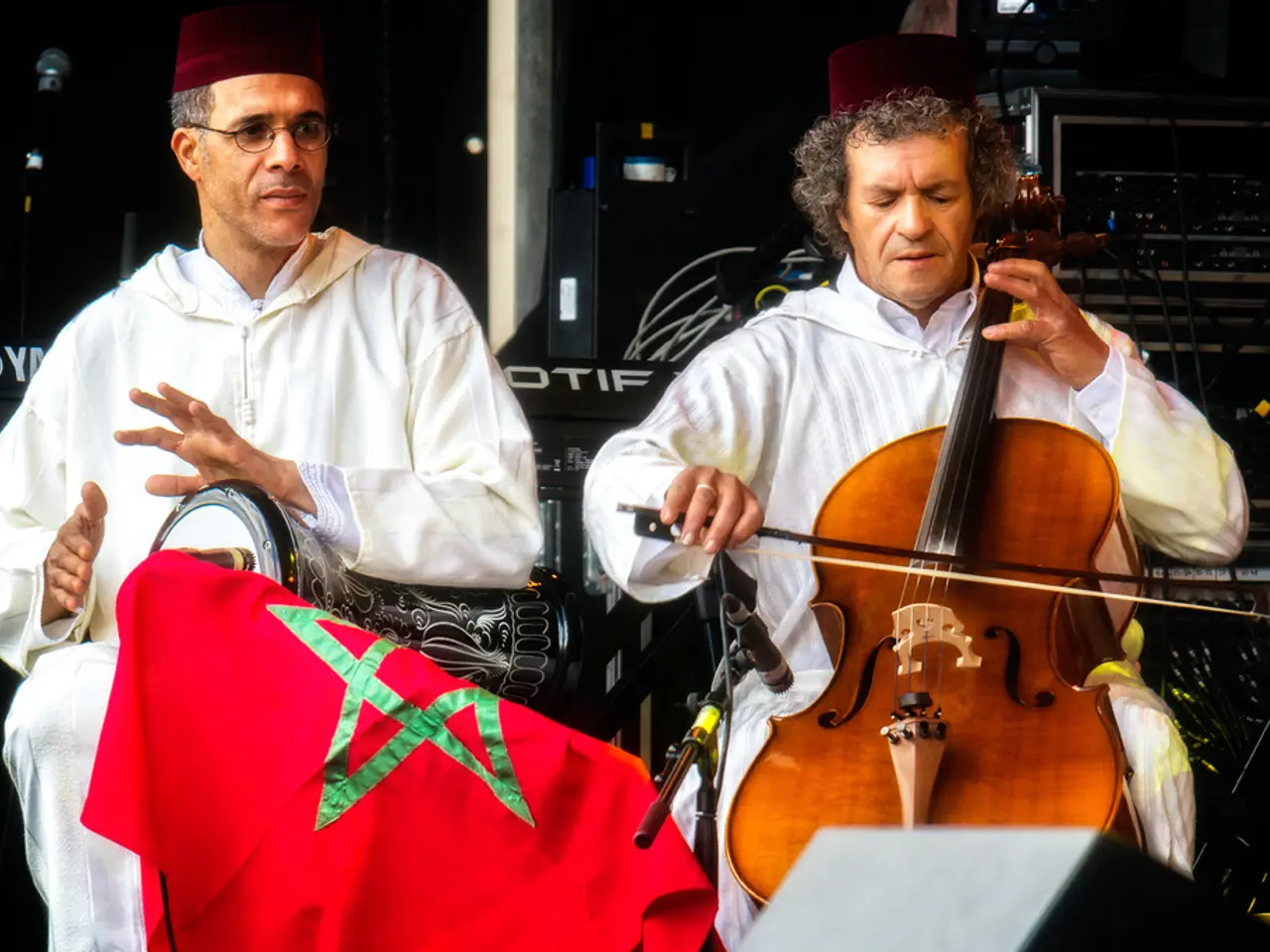Ciara officially acquires Beninese citizenship, following the African nation's initiative to grant citizenship to descendants of slaves
In a significant move towards acknowledging and reconciling with its past, Benin has passed a law granting citizenship to individuals who can trace their lineage to ancestors taken through the transatlantic slave trade. This law, passed in September 2024, is part of a broader movement by some African nations to reconnect with the African diaspora [1][3].
Benin's new law follows the footsteps of countries like Ghana and Guinea-Bissau, which have also enacted laws or policies granting citizenship to descendants of enslaved people. The "Right of Abode" law in Ghana and initiatives like the "Year of Return" in 2019 aimed to welcome descendants of enslaved Africans to return and claim citizenship or residency with ancestral connections [2]. Guinea-Bissau, while less prominently covered, also has policies facilitating citizenship claims for descendants of enslaved Africans.
The trend reflects a growing acknowledgment among African nations of their historical role in the diaspora and efforts to promote healing, justice, and cultural reconnection. Benin's law is particularly notable for its formal legislative framework and the digital platform "My Afro Origins," designed to process applications efficiently [3].
The majority of memorial sites in Benin are located in Ouidah, one of Africa's most active slave-trading ports in the 18th and 19th centuries. The Slave Route in Ouidah marks the path enslaved people took on their final journey to ships, and the Door of No Return, a haunting doorway that opens to the Atlantic Ocean, is a poignant reminder of the harsh reality of the slave trade.
Ciara, known for her chart-topping hits and philanthropy, recently expressed feelings of emotion, reflection, and heritage during her tour of the historic city of Ouidah. Following her citizenship ceremony, she toured the Slave Route and the Door of No Return. Sindé Chekete, the head of Benin's state-run tourism agency, stated that these sites provide Afro-descendants the opportunity to learn about and honour the struggles and resilience of their ancestors [4].
European merchants deported an estimated 1.5 million enslaved people from the Bight of Benin (which includes present-day Benin, Togo, and parts of Nigeria) to the Americas. Beninese kings actively participated in capturing and selling enslaved people to Portuguese, French, and British merchants. However, Benin has been working to reconcile with its legacy of complicity in the slave trade [5].
Beninese authorities accept DNA tests, authenticated testimonies, and family records as proof. The law is open to anyone above 18 who doesn't already hold other African citizenship and can provide proof that an ancestor was deported via the slave trade from anywhere in sub-Saharan Africa [6].
This approach reflects a growing trend among African nations to acknowledge their role in the transatlantic slave trade and to promote healing, justice, and cultural reconnection. The Associated Press' Africa coverage can be found at [7].
References: [1] "Benin law grants citizenship to descendants of enslaved Africans." Reuters, 2024. [2] "Ghana's 'Year of Return' aims to attract diaspora to African shores." Al Jazeera, 2019. [3] "Benin launches digital platform to process applications for citizenship." Africa News, 2024. [4] "Ciara tours historic city of Ouidah, Benin." People Magazine, 2024. [5] "Benin acknowledges role in slave trade, contrasting many other African nations." BBC News, 2021. [6] "How to apply for Beninese citizenship under the new law." The Guardian, 2024. [7] "The Associated Press' Africa coverage." AP News, [accessed 2024].
- The "Right of Abode" law in Ghana, similar to Benin's recent move, aims to foster healing and cultural reconnection among the African diaspora by welcoming descendants of enslaved Africans.
- Guinea-Bissau, like Benin, has policies in place facilitating citizenship claims for descendants of enslaved Africans, though it hasn't received as much attention as other nations in this area.
- The growing trend among African nations to acknowledge their historical role in the diaspora can also be seen in entertainment, as evidenced by celebrities like Ciara visiting memorial sites in places like Ouidah to connect with their heritage.
- Policy-and-legislation efforts such as Benin's new law, which provides a formal digital platform for processing citizenship applications, are part of a broader initiative to promote pop-culture connections with the African diaspora.





